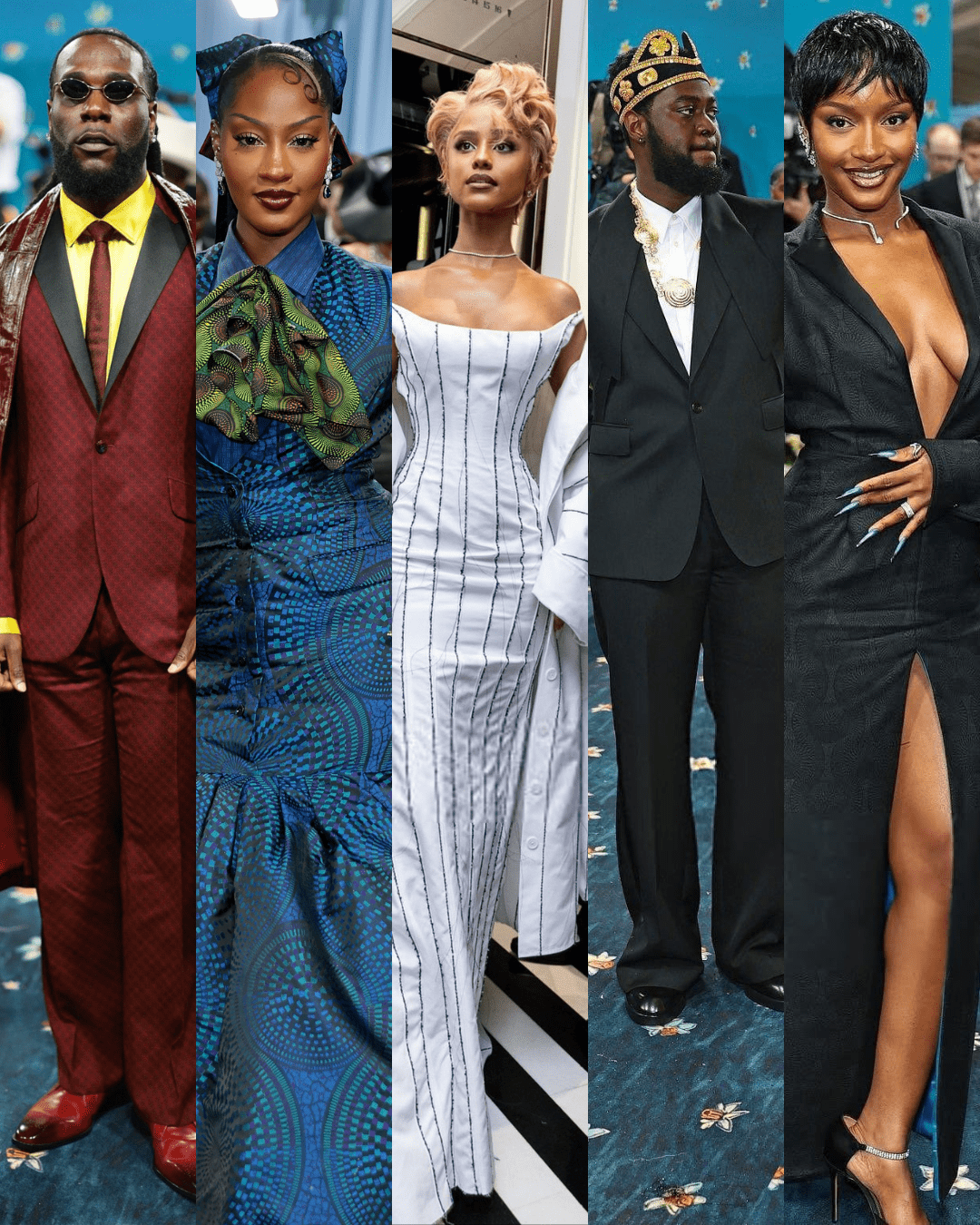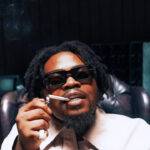Send Submissions To: inquiries@fourthavenew.com
Front Row Power: How African Artists Are Elevating Their Brands Through Paris Fashion Week
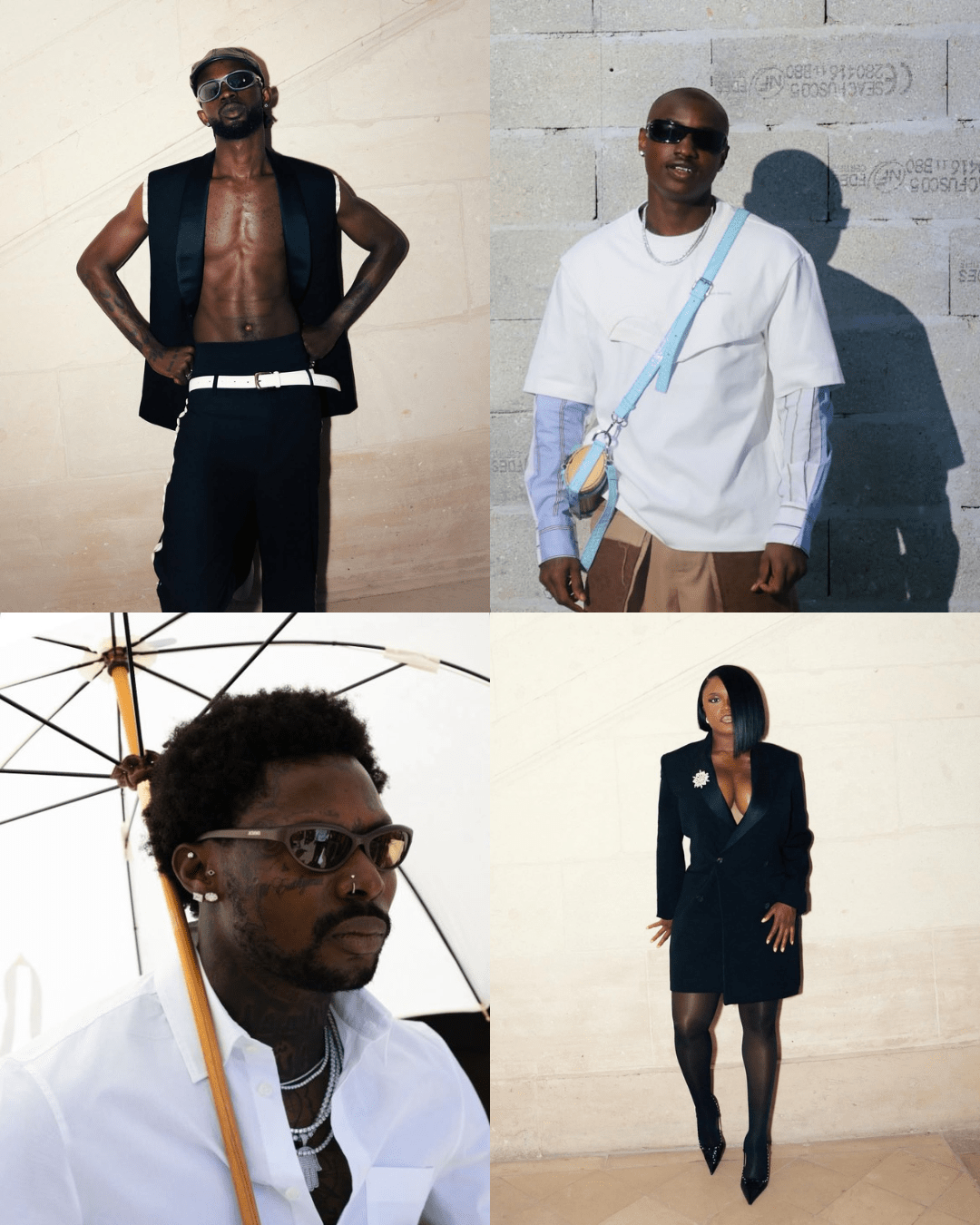
Paris Fashion Week has long been regarded as a sacred altar of global style; a space where fashion goes beyond function and becomes a statement. This year’s edition saw an unmistakable African footprint, not just on the runways, but prominently seated front row and center. African music stars like Black Sherif, Stonebwoy, Davido, Asake, Rema, Amaarae, Adekunle Gold, Ruger, Young Jonn, Diamond Platnumz, Zlatan Ibile, Uncle Waffles, King Promise and others graced shows by luxury houses such as Louis Vuitton, Dior, Jacquemus, KidSuper, Amiri and many others. While their attendance may seem like glamorous summer downtime, the reality is far more strategic. These appearances are calculated steps toward growing their personal brands, amplifying public relations, and enhancing marketing influence globally.
Being seen at Paris Fashion Week is an unspoken endorsement, it aligns artistes with creativity, global relevance, and luxury. When artistes like Rema or Asake sit front row at a Jacquemus show, they are subtly being positioned alongside some of the world’s most culturally influential individuals. This strategic association helps shift the narrative from “musician” to “cultural icon,” which is critical for artistes who want to diversify into fashion, lifestyle, and broader entertainment ventures. These appearances suggest to fans, industry executives, and potential collaborators that they are more than entertainers, they are tastemakers.
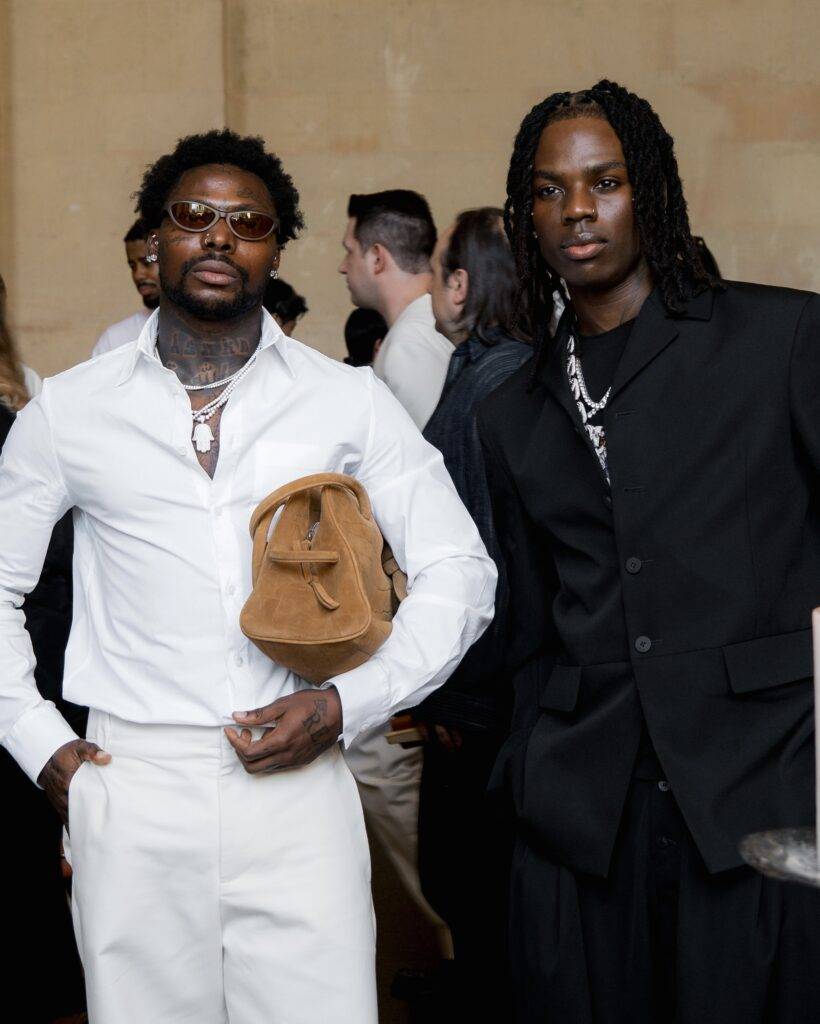
The international media presence at fashion week is unparalleled. Photographers from Getty Images, stylists, influencers, and journalists from Vogue, GQ, Highsnobiety, Hypebeast, and more cover every angle. When an African artiste makes a fashion week appearance, they are instantly woven into global coverage that extends far beyond their traditional music platforms. For instance, an image of Davido dressed in luxury like Bleumarble and seated beside global celebrities does rounds not only on fashion blogs but also across entertainment, lifestyle, and tech platforms. It multiplies PR impressions exponentially, reaching audiences who may not follow Afrobeats but respect fashion authority.
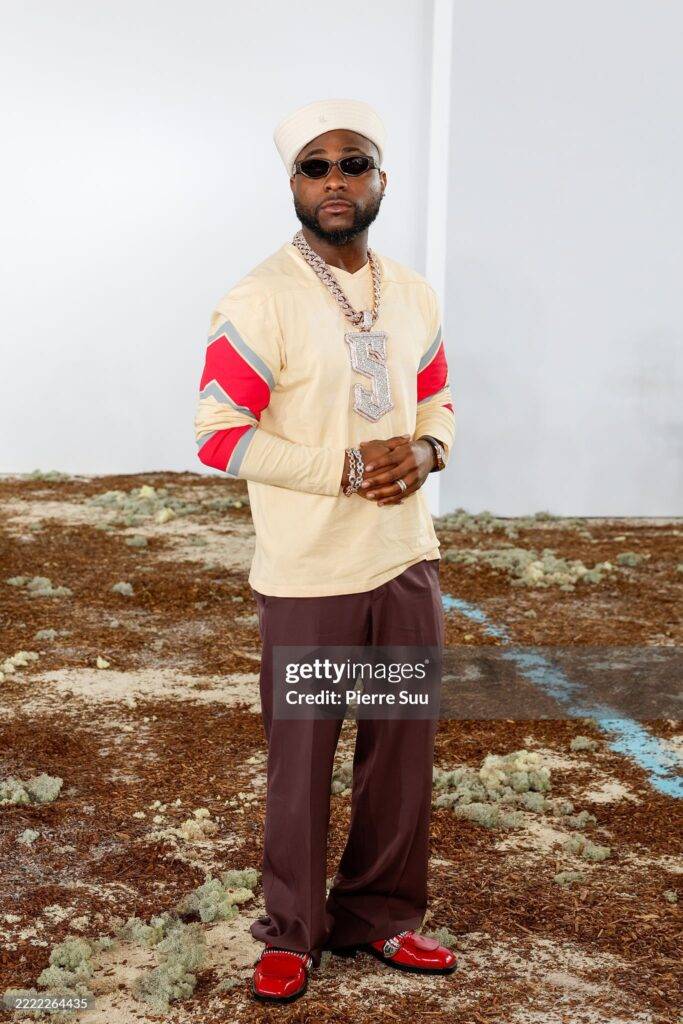
Artistes are no longer just musicians, they are ambassadors of culture. When Black Sherif or Uncle Waffles attend fashion shows in traditional or African-inspired outfits, they carry elements of African heritage into the highest rooms of Western creativity. This reinforces Africa’s growing global influence in pop culture. It’s also soft power at play: these artistes are presenting Africa as stylish, modern, and innovative. Such imagery contributes to shifting global perceptions about the continent and creates opportunities for fashion collaborations, endorsement deals, and film or creative direction gigs.
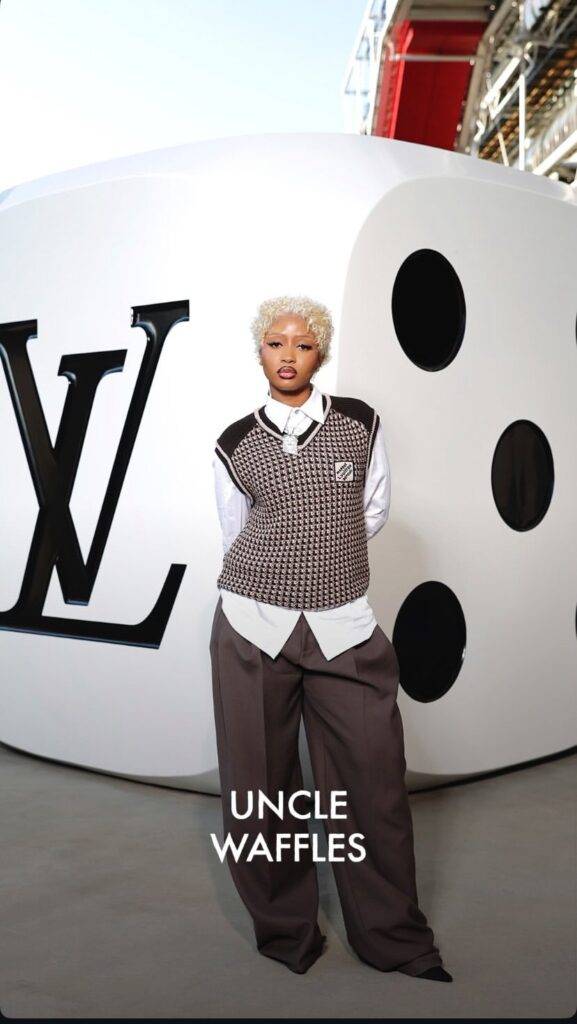
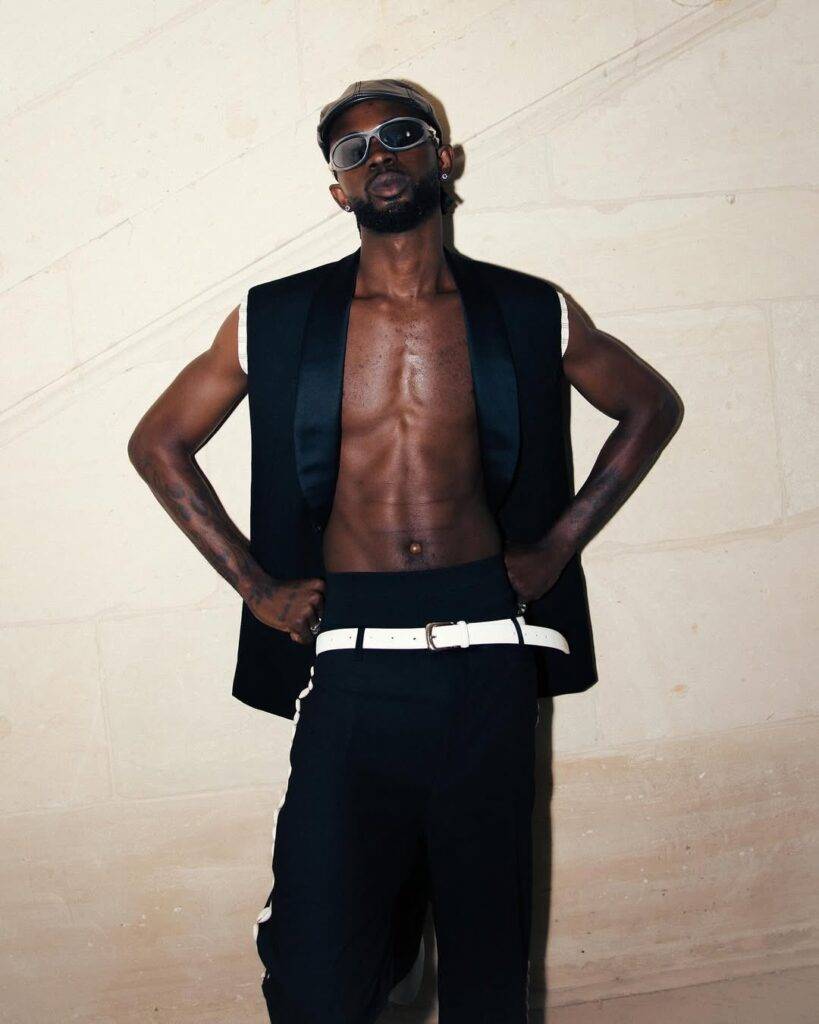
Fashion weeks are as much about what happens off the runway as what happens on it. Afterparties, private dinners, showrooms, and backstage moments serve as informal boardrooms. African artists get the chance to connect with stylists, designers, creative directors, and even tech and media executives. For example, a handful of the artistes were sighted at a private mixer to connect and have fun. These touchpoints are priceless in the world of brand building.
In today’s algorithm-driven world, content is king. A single Instagram post from fashion week can go viral, spark conversations, and generate meme culture. Artistes can capitalize on these moments to trend globally and reignite fan engagement. Fans love to see their favorite artistes in new environments. It adds depth to their personas and makes them more relatable or aspirational. For African fans, seeing homegrown talent being celebrated on a global stage reinforces pride and loyalty. For international fans, it’s an entry point into the artiste’s music and story.
Many of these artistes are fashion-forward in their own right. Davido’s streetwear drops, Rema’s experimental outfits, or King Promise’s stylish branding all suggest that fashion is an integral part of their storytelling. By being at the cutting edge of global fashion, they aren’t just absorbing trends, they’re influencing them. This sets the stage for future fashion lines, collaborations with designers, or even investment in fashion brands. It is brand expansion in real-time.
What we witnessed at this past Paris Fashion Week wasn’t just a celebrity photo frenzy, it was a masterclass in cross-industry visibility. For African artistes, attending these fashion shows builds bridges between music, fashion, and global influence. It helps convert cultural relevance into brand power, unlocks new PR opportunities, and redefines how African talent is perceived and consumed across the globe.
As the lines between industries continue to blur, those who can move fluidly between the worlds of music, fashion and business will emerge as the defining voices of this generation. And clearly, African artistes are joining the charge.




